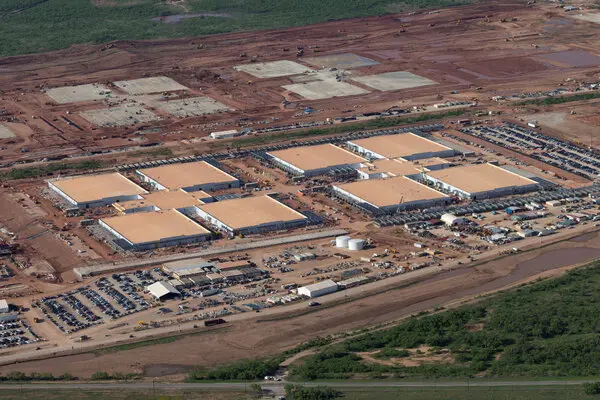OpenAI, Oracle, SoftBank Launch $500B Stargate Data Centers for AI Supremacy

OpenAI, Oracle, and SoftBank Commit $500B to Stargate AI Data Centers
In a move poised to reshape the artificial intelligence landscape, OpenAI, Oracle, and SoftBank have announced an unprecedented $500 billion investment to build five new US-based 'Stargate' data centers. This landmark initiative, revealed on September 24, 2025, aims to deliver massive AI compute capacity across multiple states and marks one of the most ambitious infrastructure projects in tech history[2].
Why Stargate Matters: The Compute Arms Race Intensifies
The Stargate initiative comes at a time when the global demand for AI compute power—critical for training large language models and generative AI systems—has reached an all-time high. By joining forces, these three industry giants plan to address the chronic shortage of AI infrastructure, accelerating innovation, bolstering US technological leadership, and raising the stakes in the global AI race[2].
Project Scope and Strategic Goals
- $500 billion total investment, one of the largest in tech infrastructure history
- Five new data centers to be constructed across the United States
- Focus on catering to frontier AI model training, general cloud AI workloads, and potentially making capacity available to third-party developers[2]
- Plans to tap advanced chipsets and sustainable energy solutions, addressing energy consumption concerns noted by analysts[2]
The scale of Stargate aims to democratize access to high-powered compute, long cited as the bottleneck for both research and commercialization of advanced AI models. By leveraging Oracle’s cloud expertise and SoftBank’s capital, OpenAI could amplify its leadership position, but concerns abound regarding potential market concentration and environmental impact.
Community Response and Expert Perspectives
While many hail Stargate as a game-changer for US tech competitiveness, some experts worry about its environmental footprint and market centralization. If capacity is made broadly available, startups and academic researchers could benefit. However, critics raise the specter of access being primarily controlled by a handful of corporate giants, which could slow open innovation[2].
What’s Next: Implications for AI’s Future
Industry analysts describe Stargate as a double-edged sword: it promises to supercharge global AI advancement and US competitiveness but elevates the need for transparent governance and responsible energy use. "We're crossing a threshold where access to compute, not just algorithms, dictates the frontier of AI," notes a leading AI policy researcher cited in coverage[2]. Construction of the first Stargate centers is expected to begin by late 2025, with initial capacity rolling out from 2027.
Stargate's progress will be closely watched by enterprises, policymakers, and the public, as its long-term effects on accessibility, innovation, and sustainability could set the tone for the next decade of AI development.
How Communities View Stargate’s $500B AI Data Center Megaproject
The Stargate announcement has ignited energetic debate across X/Twitter and Reddit’s r/MachineLearning, r/Futurology, and r/datascience communities. Most view it as a tech milestone, but strong differences have emerged about implications for the future of AI computation, access, and the environment.
-
1. Supercharging US AI Leadership (≈45%) Many tech commentators (e.g., @trentgillespie, @Raul_OShea) and r/Futurology members celebrate Stargate as "the moonshot needed to regain the AI compute edge." They emphasize that pooling OpenAI, Oracle, and SoftBank strengths could vault the US ahead of China in AI infrastructure scaling.
-
2. Monopoly Concerns & Open Access (≈30%) Critics (notably @jenny_coding and r/technology) warn the deal could put outsized control of AI capacity in the hands of a few firms, stifling startups and academic researchers. Redditors debate whether Stargate will democratize or further entrench AI platform monopolies.
-
3. Environmental & Social Impact (≈20%) Sustainability advocates (e.g., @ecotechaustin, r/sustainability) raise alarms about "Gargantuan energy consumption" and the project’s carbon footprint. They call for renewable energy mandates and public oversight, fearing unchecked damage if strong safeguards aren’t imposed.
-
4. Wait-and-See Pragmatism (≈5%) A minority—including industry insiders like @cloudinfra_jake—take a pragmatic stance, noting that execution and actual distribution policies will determine Stargate’s real-world impact.
Overall, the sentiment is mixed but leans positive, with excitement about AI’s accelerated future tempered by calls for accountability, openness, and environmental responsibility. Notable figures such as Andrej Karpathy and Yann LeCun have yet to publicly comment, but anticipation for industry feedback is high.